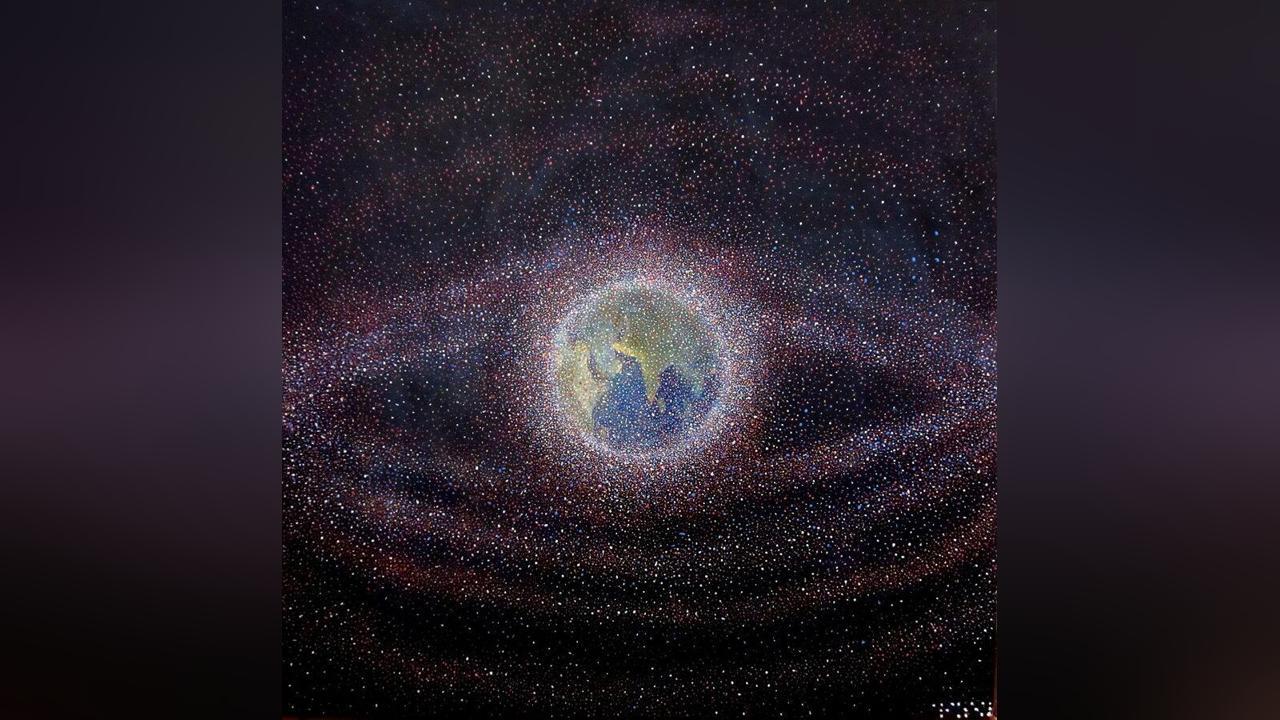Africa-Press – Namibia. According to a recent study, if a literal ‘star wars’ were to break out, it would increase the probability of the Kessler syndrome – a phenomenon in which the amount of junk and space debris in Earth’s orbit would reach a point where it creates more debris, prompting even bigger issues for satellites and space exploration missions.
A recent study published on Friday in the journal of Defense and Peace Economics found that a shooting war in space could make human exploration, in Earth’s orbit, much more dangerous for human use even after fighting ceased.
The study suspects that a shooting war that destroyed 250 satellites could fill Earth’s orbit with more than 25 million pieces of space debris. Each one of those fragments, in turn, would be the size of a marble or larger (1 centimeter) while moving at more than 22,000 miles an hour.
But it’s not as if that dangerous space debris does not already exist in orbit. Currently, there are about half a million pieces of deadly space debris rocketing about in Earth’s orbit.
A full-out space war could increase the current amount by a factor of more than 50. These fragments could have a lethal effect on spacecrafts, and thus our ability to explore space, resulting in Kessler syndrome.
“The cascade process can be more accurately thought of as continuous and as already started,” former NASA scientist Don Kessler explained about the theory that was named after him.
Researchers add that a full-scale war isn’t the only event that could trigger issues with space debris. Destruction of satellites could also cause more than 100,000 pieces of dangerous debris to be added to Earth’s orbit.
“Each collision or explosion in orbit slowly results in an increase in the frequency of future collisions,” Kessler added.
So while a space war could certainly exacerbate the issue, the phenomenon is already well underway.
In 2007, China carried out its first anti-satellite missile test, which was one of the greatest debris-generating events in history. It created more than 3,000 trackable objects and another estimated 150,000 debris particles, according to a 2012 article from a UK media. Russia then carried out its own, similar test in 2021.
Meanwhile, the US does not allow such a practice due to its risk of creating such debris. However, the Pentagon has its eyes on space, and seems to be increasing its idea that conflict may be carried out in our planet’s atmosphere. The Trump administration, for instance, was responsible for establishing the US Space Force (USSF) in 2019.
China and the US, according to one report, are now researching ways to destroy satellites without leaving behind debris.
“The establishment of the USSF resulted from widespread recognition that space was a national security imperative. When combined with the growing threat posed by near-peer competitors in space, it became clear there was a need for a military service focused solely on pursuing superiority in the space domain,” their website reads.
Space exploration may seem infinite too, but the tools presently available rest within 22,000 miles above Earth’s surface and include more than 8,000 satellites. About 90% of those objects are actually within 3,000 miles of Earth’s surface.
For More News And Analysis About Namibia Follow Africa-Press






